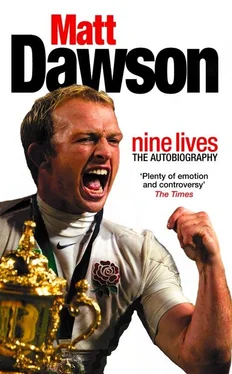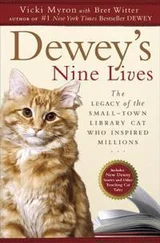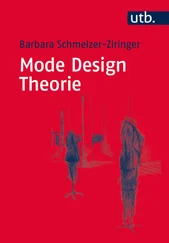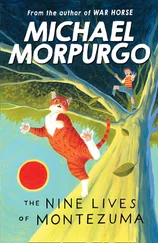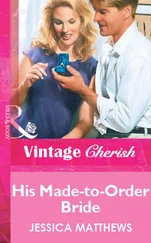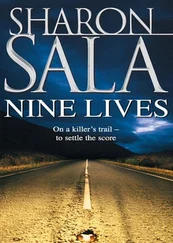Being grounded was an annual feature of my childhood. I would take my summer exams, my report would follow me home on the last day of term and my first week’s holiday would be spent paying for my poor results alone in my room.
‘This is not good enough, Matthew,’ Dad, it seemed, always said on opening the envelope. ‘You’re grounded. Go to your room.’
‘Right. Whatever.’
I was under orders to read for an hour each morning, but that was way beyond my powers of concentration. So I waited until my parents had both left the house for work and then jumped on my bike and went to meet my mates. It required military precision to get back home, return the bike to exactly the same position I’d found it in the garage, then to jump onto my bed and open the book 50 pages on from where I’d left it before Mum’s car turned into the drive.
As I got older I gradually began to realize what a fool I was being, in my rebellious attitude towards Dad in particular. He was my biggest supporter; nobody wanted better things for me than him. But that realization took time to dawn on me; initially I agreed to go back to rugby only if he stopped coaching. With time, though, I welcomed his support and indeed sought his approval, even if his vociferous backing wasn’t to the liking of everyone. In assembly one day at RGS he was named and shamed for over-exuberance on the touchline during a school match. I was so proud of him. I thought it was hilarious. It was the one and only time my name was read out during assembly without me being told off as a result. On another occasion he was warned for shouting at a referee. He liked to tell them why they were wrong (and you wonder where I got it from!).
When I played rugby during my teenage years I could always hear Dad’s voice. Whenever I passed the ball from the base of a ruck I’d hear him bark, ‘Follow the ball!’ I would have thought something was wrong had I not been able to pick out his voice. And, being a coach, his enthusiasm extended beyond the playing field, so keen was he that I got the most out of myself. When I was selected for England 16 Group Dad felt I was too much of a couch potato at home, so he organized ‘training’ sessions in our back garden. He would try to get me doing press-ups and shuttle sprints. I would go out for five minutes to humour him, then return to the sofa. Happily, certainly from Dad’s point of view, I became more committed once I turned 17. Two or three times a week I would go on an eight-mile run, up to the M40 roundabout, back down a little lane, then all along Marlow Bottom. I’d get home from school, change into my kit and set out. The best times were always in the summer when I could wear a vest and run past the girls coming home on the school buses. It was both a pleasure and a pain.
Dad wasn’t the only guiding light during my formative rugby-playing days. From the age of 13 through to the first XV my coach at RGS was Colin Tattersall, and he had a huge influence on my game. We were a successful school side, losing only two or three games a season, but when I was in the sixth form we played against hardly any public schools. They wouldn’t take our fixture because we were a state school, albeit a very good one with a strong set-up. That has since changed. RGS now plays against the likes of Radley, Millfield and Harrow, but at that time we only got to play against those sides in the Daily Mail Cup.
It was probably a good thing that I showed promise in sport because my academic accomplishments were average, as most of my tutors never tired of telling me. How I ever got into the Royal Grammar School in the first place I will never know. We had to take a 12-plus to secure a place, and how I passed that remains a mystery to me. Me and exams don’t get on. To this day I hate the words ‘exam’ and ‘test’. I managed to scrape four GCSEs first time round, adding another four later on, but I failed all my A levels, primarily because I was away playing with the England 18 Group for six to seven weeks during the lead-up to the exams. I came back not much more than a week before my first paper, so it was hardly perfect preparation. And believe me, I needed perfect preparation. Fortunately, the school allowed it, but mine was a poor show academically. It’s not something I’m proud of, but at that time of my life I was just not tuned in to working, be it homework or writing essays. All I wanted to do was play rugby. Or football, or snooker, or golf, or cricket …
I played all five matches for England under-18s in that 1990–91 season, forming a half-back partnership with Epsom’s soon-to-be-Irish Paul Burke. We narrowly lost to the touring Australians 8–3 at Twickenham (no disgrace as they won all 12 matches they played), but we beat Ireland, France and Scotland in successive matches, conceding only 16 points in the process. However, our campaign ended on a depressing note in Colwyn Bay when we lost to a Wales side that had been thrashed 44–0 by the Aussies. We had seemed on course for a Junior Grand Slam when we led 10–4 well into the second half, but we let them back in, gifted them a really soft try and Chris John’s boot did the rest. Wales won the match 13–10 and with it the Triple Crown.
The following season I moved up to the England under-21 side, leaving behind scrum-half Andy Gomarsall to captain England 18 Group to the Junior Grand Slam we had missed out on. My debut came at centre in a 21–21 draw with the French Armed Forces in a match at Twickenham played as a curtain raiser to the Pilkington Cup final between Bath and Harlequins.
It was my first game at Headquarters, and Mum and Dad were in the stands. They have barely missed a game since, a habit born out of Mum’s fear that she should always be on hand in case I suffered a bad injury. It dates back to when she used to make the sandwiches at Marlow. If any of the kids were injured she would accompany them to hospital in the ambulance, and the first thing they would always say to her was ‘I want my mum’, and that stuck with her. I know she’ll be an awful lot happier when I retire from rugby. She finds the whole experience torture, and it has never become any easier for her. But she feels that if she misses a game, I’ll get injured. I can only guess at the number of games she and Dad have missed throughout my career across the world – less than 10 certainly. I am unbelievably lucky, because although the majority of parents support their kids, very few do to the extent mine have. Dick Greenwood, father of Will and a former England player and coach, once told Mum that he knew exactly how she feels. ‘It’s like a little spotlight follows Matt around the field, isn’t it, Lois?’ he said. He couldn’t have put it better. Because of the position I play I am often trapped under piles of players while play carries on. Mum keeps watching me rather than following the ball, which she leaves to Dad. She feels that if she takes her eye off me something bad will happen. She doesn’t usually have a clue about how the game is going, but if I go down because I’ve got a fly in my eye, she’ll be the first to know.
All this support at times made for a difficult relationship between me and my sister. As kids, Emma and I lived very different lives. Socially we had different sets of friends: she went to a school in Maidenhead and had friends in Marlow whereas mine tended to be more in High Wycombe and Aylesbury. She saw her brother playing for England and getting the odd write-up in newspapers and her Mum and Dad following me everywhere. Looking back, it must have been hard for her, and I can fully appreciate her frustrations. I’m sure she would have welcomed some of that attention herself. It was only later, after we had both left home, that I consciously tried to make up for lost time. Emma is now married to Martin, with two children, Daniel and Ellen, and we often meet up for barbecues.
Читать дальше
